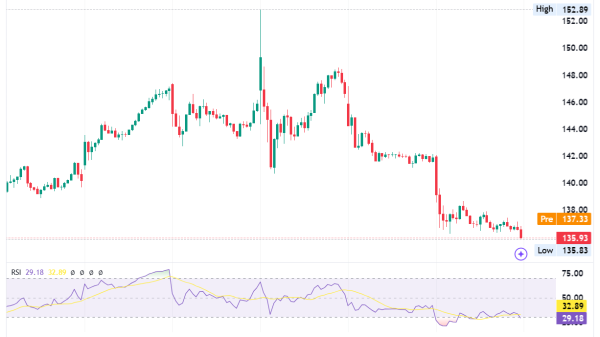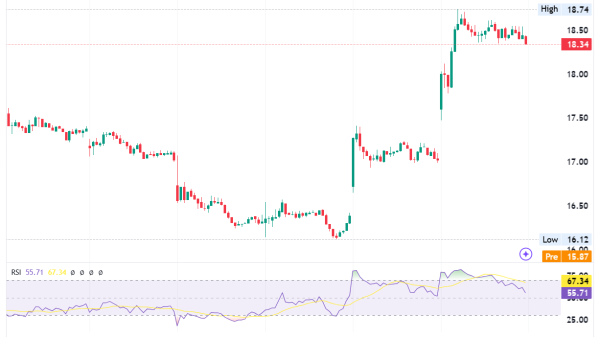What Are the Main Disadvantages of Mutual Funds?
Mutual funds have long been a popular investment choice for individuals looking to diversify their portfolios and achieve their financial goals. These investment vehicles pool money from multiple investors to purchase a diversified portfolio of stocks, bonds, or other securities.
While mutual funds offer several advantages, such as professional management and diversification, they also come with their fair share of disadvantages. These drawbacks include management fees, the inability to customize portfolios, and potential tax implications.
In this article, we will analyze the main advantages and disadvantages of mutual funds, helping investors make well-informed decisions regarding their investment strategies.
Advantages of mutual funds:
Let’s first focus on the advantages.
Advanced portfolio management: Funds are managed by professional fund managers who have the expertise and experience to make investment decisions on behalf of the investors.
These managers conduct extensive research and analysis to select the best securities for the fund’s portfolio. This professional management can potentially lead to better returns than individual investors managing their portfolios.
Liquidity: Interestingly, funds offer excellent liquidity as they are bought and sold at the end-of-day net asset value (NAV) price.
This means investors can easily buy or sell their mutual fund shares on any business day. The liquidity provided by mutual funds is advantageous for investors who may need quick access to their money in emergencies or for short-term financial goals.
Risk reduction: Reduced portfolio risk is achieved through the use of diversification, as most mutual funds will invest in anywhere from 50 to 200 different securities—depending on the focus.
Diversification is particularly beneficial for novice investors who may not have the expertise to build a well-rounded portfolio themselves.
What makes mutual funds attractive to investors?
Many funds have low minimum investment requirements, making them accessible to a wide range of investors, including those with limited capital. This affordability allows investors to participate in the financial markets with a relatively small initial investment.
There are other factors as well.
Transparency: Mutual funds are required to disclose their holdings regularly, allowing investors to see exactly which securities are in the fund’s portfolio. This transparency helps investors make informed decisions and understand the risk exposure of the fund.
Dividend reinvestment: As dividends and other interest income sources are declared for the fund, they can be used in order to purchase additional shares in the mutual fund, therefore helping your investment grow.
Disadvantages of mutual funds:
No matter how hard we try, we can’t avoid potential challenges. It is important to have at least a basic understanding of various issues. So, let’s take a look at the disadvantages of mutual funds.
Fees and expenses: Perhaps the most significant disadvantage of mutual funds is the fees and expenses associated with them. Funds charge management fees, also known as expense ratios, which are a percentage of the fund’s assets under management (AUM).
These fees can vary significantly and may erode a substantial portion of an investor’s returns over time. Additionally, some funds impose sales charges, also known as loads, when you buy or sell shares, further reducing your overall returns.
Lack of control: When you invest in a mutual fund, you delegate the decision-making authority to a fund manager. While this can be an advantage in terms of professional management, it also means you have limited control over the specific securities in the fund’s portfolio. If the manager makes poor investment choices, your returns may suffer.
Tax inefficiency: Funds can be tax-inefficient compared to other investment options like individual stocks or exchange-traded funds (ETFs). This is because mutual funds are required to distribute capital gains to investors at the end of the year, even if you did not sell any shares. These capital gains distributions can result in tax liabilities for investors, which can be a significant drawback for taxable accounts.
Market risk and other potential challenges
Market risk: While diversification is a key advantage of mutual funds, it does not eliminate market risk altogether.
Importantly, funds are still subject to the overall performance of the financial markets. If the broader market experiences a downturn, mutual funds can also decline in value, potentially leading to investor losses.
Performance variability: The performance of mutual funds can vary widely based on the fund manager’s skill, investment strategy, and market conditions. There is no guarantee that a mutual fund will consistently outperform the market or even its benchmark index. Investors may find it challenging to identify consistently top-performing funds.
Lack of personalization: We also can’t forget about a lack of personalization regarding the disadvantages of mutual funds.
Funds are designed to be one-size-fits-all investment vehicles. They are not tailored to individual investor needs, risk tolerance, or financial goals. This lack of personalization can be a significant disadvantage for investors with specific investment preferences or those who require customized strategies.
In conclusion, funds offer numerous advantages, such as diversification, professional management, liquidity, and affordability, making them a viable investment choice for many individuals.
However, you need to pay attention to the disadvantages of mutual funds.
To make informed investment decisions, it’s essential for investors to carefully consider both the pros and cons of mutual funds and assess how well they align with their financial goals and risk tolerance.
The post What Are the Main Disadvantages of Mutual Funds appeared first on FinanceBrokerage.





























